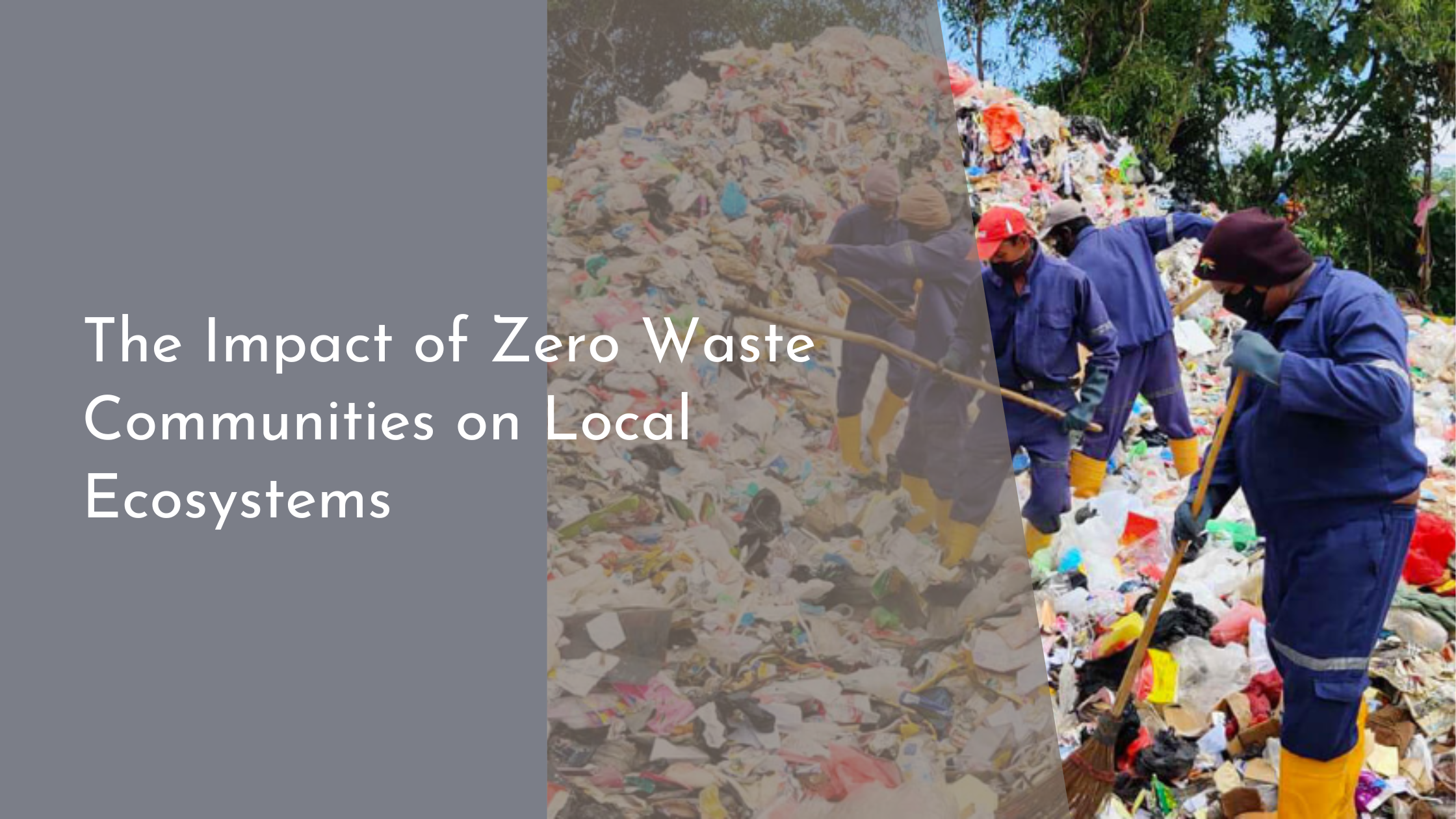The Impact of Zero Waste Communities on Local Ecosystems
In recent years, zero waste communities have emerged as a beacon of hope in the fight against environmental degradation. These communities strive to minimize waste output and promote sustainable living practices, ultimately aiming to reduce the detrimental impacts of waste on our planet. By fostering a culture of recycling, reusing, and reducing consumption, zero waste communities are making significant strides in protecting local ecosystems. This article delves into the core principles of zero waste communities, explores their positive effects on local biodiversity, discusses the challenges they face and the solutions they implement, and highlights the importance of adopting zero waste practices for a sustainable future.
Understanding Zero Waste Communities’ Principles
Zero waste communities are built on the philosophy of reimagining waste as a resource rather than a conundrum. At the heart of this philosophy lies the commitment to divert waste from landfills and oceans by promoting recycling, composting, and the reduction of single-use items. These communities actively encourage residents to adopt sustainable habits such as buying in bulk, using reusable containers, and choosing products with minimal or compostable packaging. The ultimate goal is to create closed-loop systems where materials are continuously reused, mimicking the natural cycles found in nature.
Education and collaboration are essential components in implementing zero waste principles. These communities often engage in outreach programs to teach individuals and businesses about the benefits of waste reduction and the practical steps needed to achieve it. By fostering partnerships with local governments, businesses, and non-profit organizations, zero waste communities create a unified front in their quest to minimize environmental impact. This collaborative approach not only amplifies individual efforts but also strengthens the community’s overall capacity to embrace sustainable practices.
Positive Effects on Local Biodiversity
The transition to zero waste living has profound implications for local biodiversity. By reducing the amount of waste that ends up in landfills and natural habitats, zero waste communities help minimize pollution and its harmful effects on wildlife. Decomposing waste emits greenhouse gases and leaches toxins into the soil and waterways, disrupting the delicate balance of local ecosystems. By curbing these pollutants, zero waste efforts contribute to cleaner air and water, creating healthier environments for plants and animals to thrive.
Moreover, zero waste practices support biodiversity by promoting soil health through composting. Composting transforms organic waste into nutrient-rich soil amendments, enhancing the growth of native plant species and increasing their resistance to pests and diseases. This fosters a diverse plant community that can support a wide range of wildlife, from insects and birds to mammals. As native flora flourishes, so too does the intricate web of life that depends on it, resulting in more resilient ecosystems that can better withstand environmental changes.
Challenges and Solutions for Implementation
Despite the numerous benefits, transitioning to zero waste communities is not without its challenges. One significant hurdle is changing deeply ingrained consumer habits and overcoming the convenience-driven culture that prioritizes disposable products. To address this, zero waste communities focus on education campaigns that highlight the long-term environmental and economic benefits of sustainable living. By showcasing real-life examples of successful zero waste initiatives and the positive impacts they’ve had, communities inspire individuals to take proactive steps towards reducing their own waste.
Another challenge is the initial cost and logistics involved in setting up infrastructure for waste diversion and recycling. However, innovative solutions and community-driven projects are paving the way for more cost-effective implementations. Collaborating with local businesses to create shared resources, such as community composting facilities or tool lending libraries, helps distribute costs and makes sustainable practices more accessible to everyone. Additionally, some communities have established financial incentives, such as tax breaks or subsidies, for businesses and homeowners who adopt zero waste practices, further encouraging widespread participation.
Embracing Zero Waste for a Greener Future
Embracing zero waste practices is not just about reducing waste; it’s about reimagining our relationship with consumption and the natural world. By committing to sustainable living, zero waste communities empower individuals to make mindful choices that prioritize the health of the planet. This cultural shift fosters a deeper appreciation for the resources we have and encourages a more conscious approach to how we use them. As more communities adopt these principles, the collective impact can drive significant environmental recovery and conservation efforts.
The zero waste movement represents a hopeful vision for a greener future, where communities thrive in harmony with their environments. By eliminating excessive waste and pollution, we pave the way for ecosystems to regain their natural balance and resilience. As local biodiversity flourishes, these communities not only protect the planet for future generations but also enhance the quality of life for all residents. In embracing zero waste, we take a crucial step towards a sustainable world where nature and humanity coexist sustainably.
The journey towards zero waste communities is a challenging yet rewarding one, marked by the commitment to protect and preserve our planet’s precious ecosystems. By understanding and implementing zero waste principles, communities can significantly reduce their environmental footprint and foster thriving local biodiversity. Despite the obstacles, the innovative solutions and collaborative efforts of zero waste communities offer a blueprint for sustainable living that can inspire others to follow suit. As more people embrace zero waste practices, we can collectively work towards a cleaner, healthier, and more sustainable future, ensuring that our natural world continues to flourish for generations to come.

